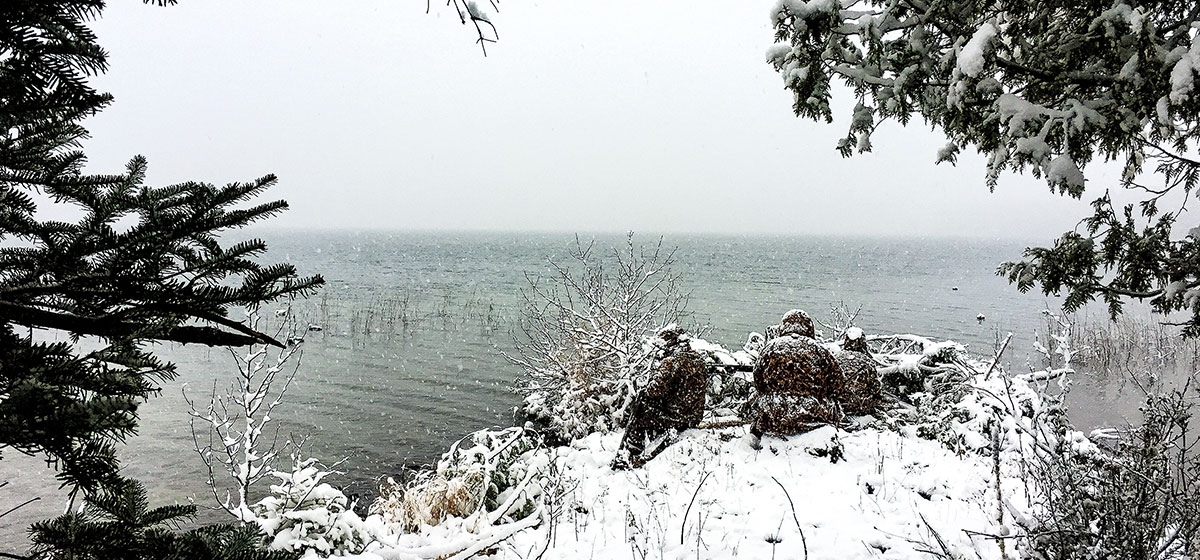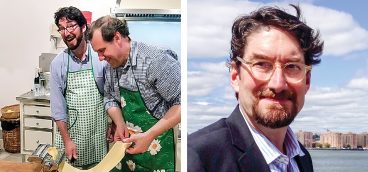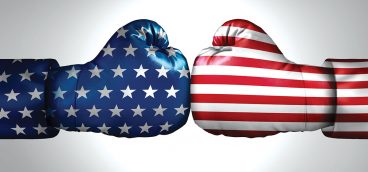The Migrations of Hunting

“Nature is a wet place where large numbers of ducks fly around uncooked.” —Oscar Wilde
I didn’t grow up in a hunting family. When it came to wild animals, we enjoyed simply seeing them, not killing them. And the least likely kind of hunting for me might have been ducks. I liked the book “Make Way for Ducklings” when I was little, and in high school, I once told a duck hunter classmate, “I’d rather shoot a duck hunter than a duck.”
So how did I ever find myself in a duck blind, shotgun in hand?
It began 25 years ago on a beautiful fall day. I was showing some remote island property in Michigan’s Upper Peninsula to a Nature Conservancy representative. He was a bright young Cornell graduate, and as we chatted about our weekend plans, he mentioned duck hunting. I asked how he squared that with being a conservationist, and he said that people only accounted for about 1 percent of duck mortality and that the license fees and donations from hunters are critical in protecting wetlands for ducks.
The next fall, I had the same conversation with a guy from the regional conservancy. That weekend, some friends were up there, and asked if I’d like to go duck hunting. They had an extra shotgun. I considered it for a moment and then said yes.
They said to wear camo if I had any, but no bright colors or white. Ducks notice movement and anything out of the ordinary.
We boated to one of the islands, deserted that time of year, and carried the guns and decoy bags through the woods. We emerged at a rocky point, where a lone birch tree stood like a weathered sentinel, about 10 feet past a line of evergreens. The duck blind sat at the water’s edge—a pile of brush, sticks and evergreen boughs about four feet high that wrapped around a stout plank “bench” resting on rocks.
They’d picked that point based on wind direction. Ducks like to land into the wind, they said, in the calm waters in the lee of the land. We pulled the colored plastic decoys out of the bags, unwrapped the strings with weights on the end and started throwing them into the water, creating a U shape, with a duck landing area in the middle, just beyond the blind. When the 24 decoys bobbed and swam on their tethers, we sat on the bench, wind at our backs.
Instead of following the Elmer Fudd dictum of being “ve-wy ve-wy quiet,” we talked, joked and laughed, all the while scanning the bay for ducks. Talking stopped when Alex said, “Ducks, about 20, 11 o’clock, far out but coming this way.” I peered out, and finally saw them. Unlike geese with their rigid V formation, ducks fly in a pattern that crumbles and changes like a fragmenting black wave against the clouds. The flight split, with half heading our way.
There’s nothing leisurely about flying ducks. No soaring. They move their wings as fast as they can, flying at 50–60 miles an hour.
“Okay, slowly, get your gun,” Joel said. Keeping my head still, I reached forward, hidden by the blind. I was still fumbling with the safety when suddenly eight ducks came in, holding their wings back to break their speed and steer. “Now!” Joel said, standing.
“Pow! Pow! Pow!” The 12-gauge shotguns shattered the silence. The ducks turned mid-air, veering away. Another almost simultaneous “Pow! Pow! Pow!” The concussive blasts rolled over the water, echoing through the islands. And just like that, two ducks lay dead in the water before us, one twitching briefly.
After a post mortem, Alex headed to the boat to retrieve the ducks before the current carried them away. Joel smiled at me and said, “If you’re like the rest of us the first time, you saw a bunch of ducks and probably just fired into the group.” That was exactly what I’d done. “The key is to pick one and aim.”
My next chance came 30 minutes later, when Alex suddenly said, “Ducks, coming fast, left to right.” I was already holding my gun and switched off the safety. Six birds sped over the decoys like a squadron of fighter planes, no intention to land. I raised my gun, saw one, aimed and “Blam!” It toppled through the air dead, splashing into the water. The guys congratulated me, and I could feel the adrenaline.
Within 10 minutes, Alex brought the duck back, dropping it in the leaves behind the blind with the two other ducks. I squatted, looking at them.
The scene with its muted fall colors remains indelible: jagged gray rocks and a lone birch, fewer than half its yellow leaves remaining, the others providing a dappled resting place for the ducks. One was a female bufflehead, grayish brown, with striated wing patterns, a light brown head and a splash of white on each cheek. Next to her, the male was all color, its head half bright white and half iridescent greenish purple. Its back was shiny black and its chest pure white, dotted with flecks of blood. The third was the bird I’d shot—a small, uniformly grayish duck except that each wing had a narrow band of the brightest, shimmering green I’ve ever seen—hence its name, green-winged teal. It was still warm as I held it breast up in my palm, its head falling back loosely between my thumb and forefinger. Slowly, I examined its lustrous black and gray bill, thick webbed feet, soft downy breast and intricate feathered wings.
That night after a drink, I learned how to clean the bird I’d shot and had my first taste of wild duck.
There was something ineffably sublime about the whole experience—exhilarating and magnificent with a touch of sadness—like hearing a beautiful, half-familiar strain of music, an ancient call that beckons you to answer.
* * *
For the next 23 years, I hunted in the same group of islands, the last 16 with college friends, none of whom had experience but who soon learned to hunt and liked it. We first numbered four but over time doubled to eight. The daily routine varied little: Wake up an hour before first light, don head-to-toe camo, load up the boat, and zoom off into the cold darkness. By first light, we’ve set the decoys and are in the blind, admiring the sunrise and scanning the horizon. After the morning hunt comes a big breakfast in town, followed by what’s probably an unusual twist in the realm of duck hunting. Each trip we discuss a work of nonfiction, literature or philosophy we agreed to read the previous year. Then it’s back to the blind for a more relaxed afternoon hunt.
You can’t get too relaxed though. A 12-gauge shotgun is massively powerful, twice the explosive power of the .44 Magnum that Clint Eastwood famously called “The most powerful handgun in the world” in “Dirty Harry.” So hunting with them requires rules. No alcohol. No sweeping the barrel past another person, loaded or unloaded. Safeties always on until just before shooting. Guns unloaded while walking unless hunting, and then safeties on.
Death lurks one mistake away, we learned one day, while walking single-file through the woods hunting grouse. I was in front and paused, turning back to whisper something to the friend behind me. His black barrel was about two feet from my head and angled slightly away when it went off, flame leaping from the barrel. The shock wave hit me, but not the BBs. I was momentarily deaf. The initial thoughts of our two other friends were, “What will we tell Doug’s family?” and, “How will we get his body off the island?”
Over the years, we got better at everything, including safety. As we improved, our trips grew from three to five days, moving later into October and then into November, when the bigger flights come down from Canada. Ducks move in bad weather—the worse, the better. And the later we came, the bigger the flights we saw, sometimes up to several hundred birds, high in the air, riding a strong north wind. We got better at shooting ducks too. But there was another rule: never shoot more than we need for the duck dinner the Saturday before we leave.
Duck hunting isn’t all about ducks, though. It’s about being in nature. It’s about driving through a snowstorm the night of arrival, and awakening the next day on an uninhabited island with a foot of pristine snow on the ground, fall leaves at their bursting peak and a cloudless deep blue sky above. It’s walking through the woods and startling a reclusive great gray owl—the biggest in the world—and watching its five-feet wingspan carry it deeper into the forest. It’s rounding a point by boat and seeing 12 bald eagles taking a break from migration, perched on the rocks, gorging on two 20-pound fish. It’s standing outside on a cold, clear night with a glass of scotch—you and your friends the only ones on the island—marveling at the northern lights, red on both horizons and greenish white in the dome of the sky, as coyotes howl a chorus somewhere in the heart of the island.
And it’s about camaraderie. As darkness falls after a long day in the elements, the boat flies around the last point, and the cottage lights finally appear, the only beacon on the dark island. We tie up, unload and climb the hill, happy to be home. The cold house springs to life. One man gets wood, as another lights the fire. One stows the gear. Another starts the music. One serves the drinks. Another serves bread, cheese and meat. I remain on the porch, the last to come in, cleaning that day’s ducks under a fluorescent yellow bulb.
I’ve always cleaned the ducks, and I don’t mind. I’m not meticulous by nature, but I am when cleaning ducks. We’ve taken their lives. The least I can do is make sure no meat is wasted. Their bodies are remarkable and varied. There are grain eaters and fish eaters. Smooth bills and serrated bills. Small, early migrators with little fat and tremendous four-pounders that come down at the end, layered with insulation. These are wild birds, and the meat is unlike anything you can buy—dark reddish purple and rich. On some, the breast isn’t much bigger than a silver dollar. On others, it’s bigger than a big man’s palm. I throw the carcasses into the woods and by morning they’re gone.
Cooking took years to perfect. I trolled duck hunter forums and finally came upon what we’ve agreed is the best recipe: Marinate the breasts for a day or two in coffee grounds or teriyaki sauce. Light the grill. On each breast, place a rectangle of cream cheese, and on top of that, a long thin, slice of jalapeño. Wrap the concoction with bacon and hold it together with a toothpick. The bacon plays three roles. It tastes good, keeps the duck moist on the grill, and when the bacon’s done, the duck is done. That last part’s vital when you’re cooking in the dark on a moonless night on the island. When they’re done, we paint a glaze of homemade blackberry jam on each. I relinquished the cooking years ago, happy to await the cooks’ arrival with two blue willow platters laden with ducks. The red wine poured, the candles lit, everyone takes a seat around the old dining room table. I say a toast that borders on a prayer (or vice versa), thanking the ducks and appreciating old friends, and we all savor one of the best meals we’ve ever had.
* * *
Perhaps, like the ducks, we all have our migrations.
Two years ago, we witnessed the biggest migration we would ever see. A freakish polar blast hit in November, sending temperatures from the usual low 30s to five below zero. The wind howled from the north and the spray from the waves turned to ice in mid air. As we tied up the boat, my friend Jeb elbowed me, speechless and pointing to the north. The sky was black with ducks, 5,000 of them pouring in from Canada, with similar flights continuing all day. We all stood there in awe.
I knew we’d never see anything like that again. What I didn’t know at the time was that I would never hunt again.
Later that afternoon, a big flight of beautiful mallards landed along the shore. We already had all we needed for the dinner, but three of the guys went out after them—instinct and habit are strong. If they’d shot them, there’d be no way of retrieving them—the boat refused to start. So I lit out, taking a shortcut, breaking through the brush to where the ducks swam, waiving my arms and whispering, “Get outta here!” Just in time, they flew away, and I returned to the cottage, no one being the wiser.
A year ago, we went out, but I didn’t shoot. I simply didn’t want to kill them anymore.
And in May, I cut all animal products out of my diet for health reasons, officially ending my days as a hunter. If I wasn’t eating them, I wasn’t shooting them.
This past fall, we moved the gathering to mid-October. Those who wanted to could still hunt—that was fine with me. However, the weather turned out to be so nice—blue skies and temps in the 40s and 50s—that no one did. No birds were flying anyway. Instead we took long walks through the islands during the peak leaves. Our gathering didn’t suffer. We filled the time with other activities and simply enjoyed being together in a beautiful place.
As for adventure, if we need it, we could just wake up before dawn and take the boat out in a slashing sleet storm. But everyone seemed to like sleeping in.
Still, when we’re out in the boat skimming over the water on a beautiful day, one of the guys will point and call over the noise of the engine, “Ducks—3 o’clock—coming over the tree line.” We all look and admire them, watching the wild birds fly like hell—as only ducks can—speeding through the air on their long journey south.





